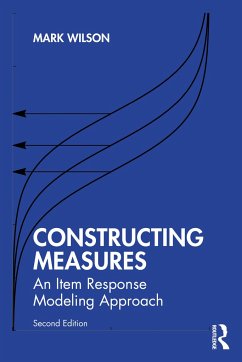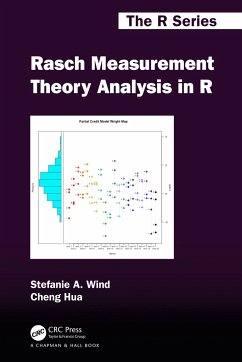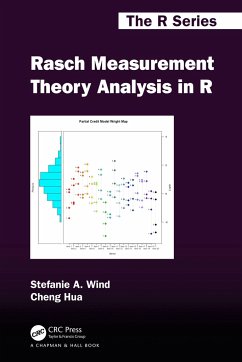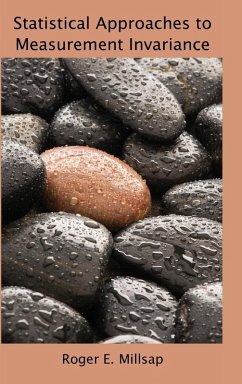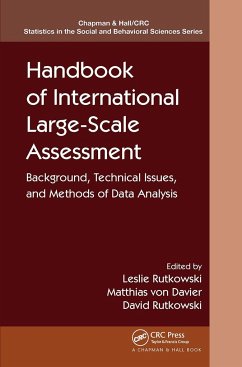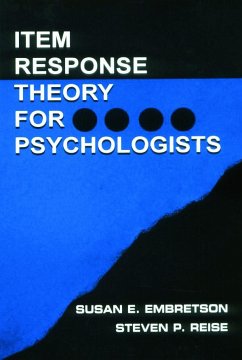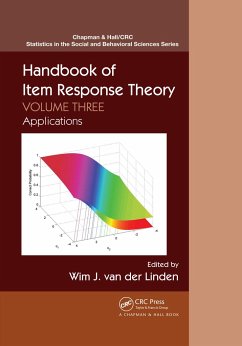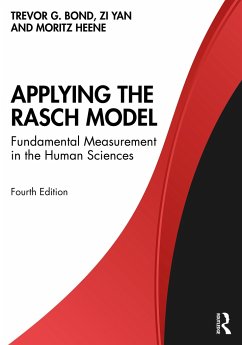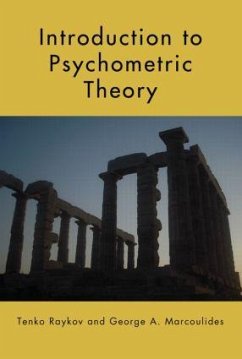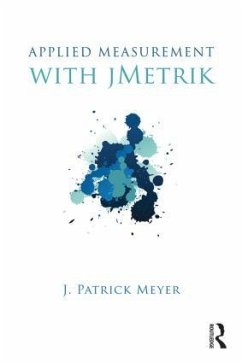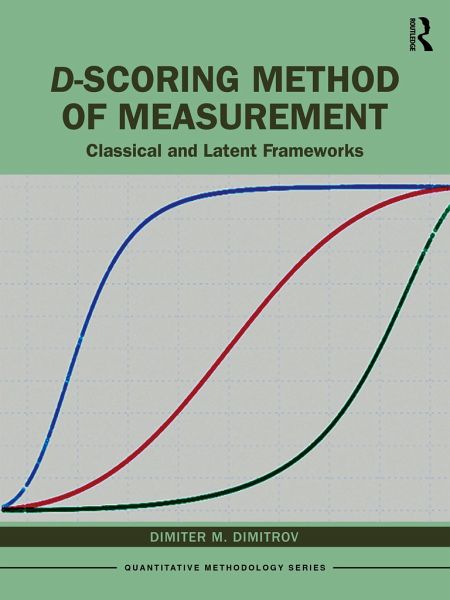
D-scoring Method of Measurement
Classical and Latent Frameworks
Versandkostenfrei!
Versandfertig in 6-10 Tagen
40,99 €
inkl. MwSt.
Weitere Ausgaben:

PAYBACK Punkte
20 °P sammeln!
D-scoring Method of Measurement presents a unified framework of classical and latent measurement referred to as D-scoring method of measurement (DSM). Provided are detailed descriptions of DSM procedures and illustrative examples of how to apply the DSM in various scenarios of measurement.The DSM is designed to combine merits of the traditional CTT and IRT for the purpose of transparency, ease of interpretations, computational simplicity of test scoring and scaling, and practical efficiency, particularly in large-scale assessments. Through detailed descriptions of DSM procedures, this book sho...
D-scoring Method of Measurement presents a unified framework of classical and latent measurement referred to as D-scoring method of measurement (DSM). Provided are detailed descriptions of DSM procedures and illustrative examples of how to apply the DSM in various scenarios of measurement.
The DSM is designed to combine merits of the traditional CTT and IRT for the purpose of transparency, ease of interpretations, computational simplicity of test scoring and scaling, and practical efficiency, particularly in large-scale assessments. Through detailed descriptions of DSM procedures, this book shows how practical applications of such procedures are facilitated by the inclusion of operationalized guidance for their execution using the computer program DELTA for DSM-based scoring, equating, and item analysis of test data. In doing so, the book shows how DSM procedures can be readily translated into computer source codes for other popular software packages such as R. D-scoring Method of Measurement equips researchers and practitioners in the field of educational and psychological measurement with a comprehensive understanding of the DSM as a unified framework of classical and latent scoring, equating, and psychometric analysis.
The DSM is designed to combine merits of the traditional CTT and IRT for the purpose of transparency, ease of interpretations, computational simplicity of test scoring and scaling, and practical efficiency, particularly in large-scale assessments. Through detailed descriptions of DSM procedures, this book shows how practical applications of such procedures are facilitated by the inclusion of operationalized guidance for their execution using the computer program DELTA for DSM-based scoring, equating, and item analysis of test data. In doing so, the book shows how DSM procedures can be readily translated into computer source codes for other popular software packages such as R. D-scoring Method of Measurement equips researchers and practitioners in the field of educational and psychological measurement with a comprehensive understanding of the DSM as a unified framework of classical and latent scoring, equating, and psychometric analysis.





